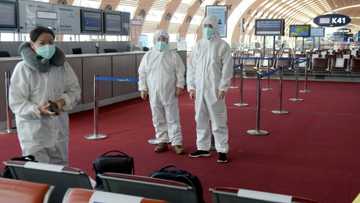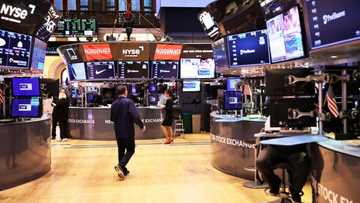Asian markets struggle out of gate for new year

Source: AFP
Asian stocks started Tuesday on the back foot as traders in most markets returned from the new year break to the same worries over interest rates, China's growth and the Ukraine war, which fuelled a worldwide rout last year.
While 2022 was painful for investors, there is a fear that the next 12 months could be as bad, with the head of the International Monetary Fund warning a third of the global economy could slip into recession.
Eyes are on China, where the swift removal of most zero-Covid measures has sparked a massive surge in infections that has filled up hospitals and left crematoriums overloaded.
The widespread outbreak has fanned fresh concerns for the economic outlook as businesses are being forced to shut down, after having already been battered by the strict containment measures put in place for almost three years.
Analysts said infections may have already peaked in major cities such as Shanghai and Beijing, where activity is picking back up.
But there are fears that an expected spike in travel over the Lunar New Year holiday at the end of the month could see cases spread to the countryside and further impact the economy.
PAY ATTENTION: Subscribe to Digital Talk newsletter to receive must-know business stories and succeed BIG!
"With the ongoing Covid tidal wave, investment sliding to a 10-quarter low, and new orders continuing to get battered, a meaningful first-quarter recovery is increasingly unrealistic," Derek Scissors, of CBBI, said.
And IMF chief Kristalina Georgieva said with China's economy looking shaky just as the United States and European Union edge towards contraction, the outlook for the world was downbeat for 2023.
She told CBS's "Face the Nation" that this year will be "tougher than the year we leave behind".
While the United States may avoid it, she warned half the 27-nation European Union will be in recession, as the bloc is "very severely hit" by the Ukraine conflict.
China's economy will likely be at or below global growth for the first time in 40 years, she added.
In early trade, Hong Kong led losses, shedding more than two percent -- having suffered its worst year since 2011 -- while there was also hefty selling in Shanghai, Sydney, Seoul, Singapore, Taipei and Jakarta.
"After an ugly 2022, catalysed by hyperinflation and a war on NATO's doorstep, its only fitting stocks are struggling for traction out of New Year gates, given neither of the two adverse drivers in 2022 has been resolved," said SPI Asset Management's Stephen Innes.
Investors are also bracing for another series of central bank rate hikes in the early months of the year as monetary policymakers battle to rein in decades-high inflation.
The sharp increase in borrowing costs last year was a key reason for the major pain suffered by equity markets as traders contemplated the end of years of cheap cash.
The Fed and others have suggested they will slow down their pace of increases, but they are tipped to take rates higher than previously expected and not start to cut until later in the year or even 2024.
Friday's release of US jobs data will be closely followed for an idea of how the Fed will move next, with a strong reading likely to put pressure on the bank to keep lifting for some time.
Still, the yen extended its gains against the greenback -- hitting its highest level since June -- after the Bank of Japan shifted away from its long-standing ultra-loose monetary policy.
Key figures around 0230 GMT
Hong Kong - Hang Seng Index: DOWN 2.0 percent at 19,385.27
Shanghai - Composite: DOWN 0.5 percent at 3,074.13
Tokyo - Nikkei 225: Closed for public holiday
Dollar/yen: DOWN at 130.25 yen from 130.77 yen on Monday
Euro/dollar: UP at $1.0660 from $1.0654
Pound/dollar: UP at $1.2056 from $1.2049
Euro/pound: DOWN at 88.42 pence from 88.44 pence
West Texas Intermediate: DOWN 0.8 percent at $79.63 per barrel
Brent North Sea crude: DOWN 0.9 percent at $85.15
New York - Dow: DOWN 0.2 percent at 33,147.25 (Friday close)
London - FTSE 100: DOWN 0.8 percent at 7,451.74 (Friday close)
Source: AFP






